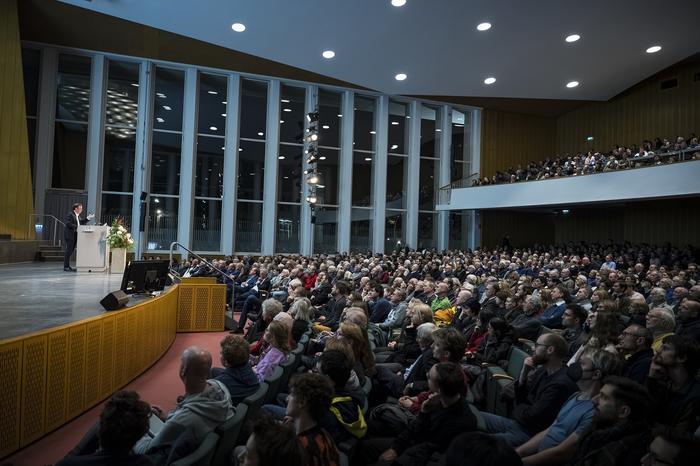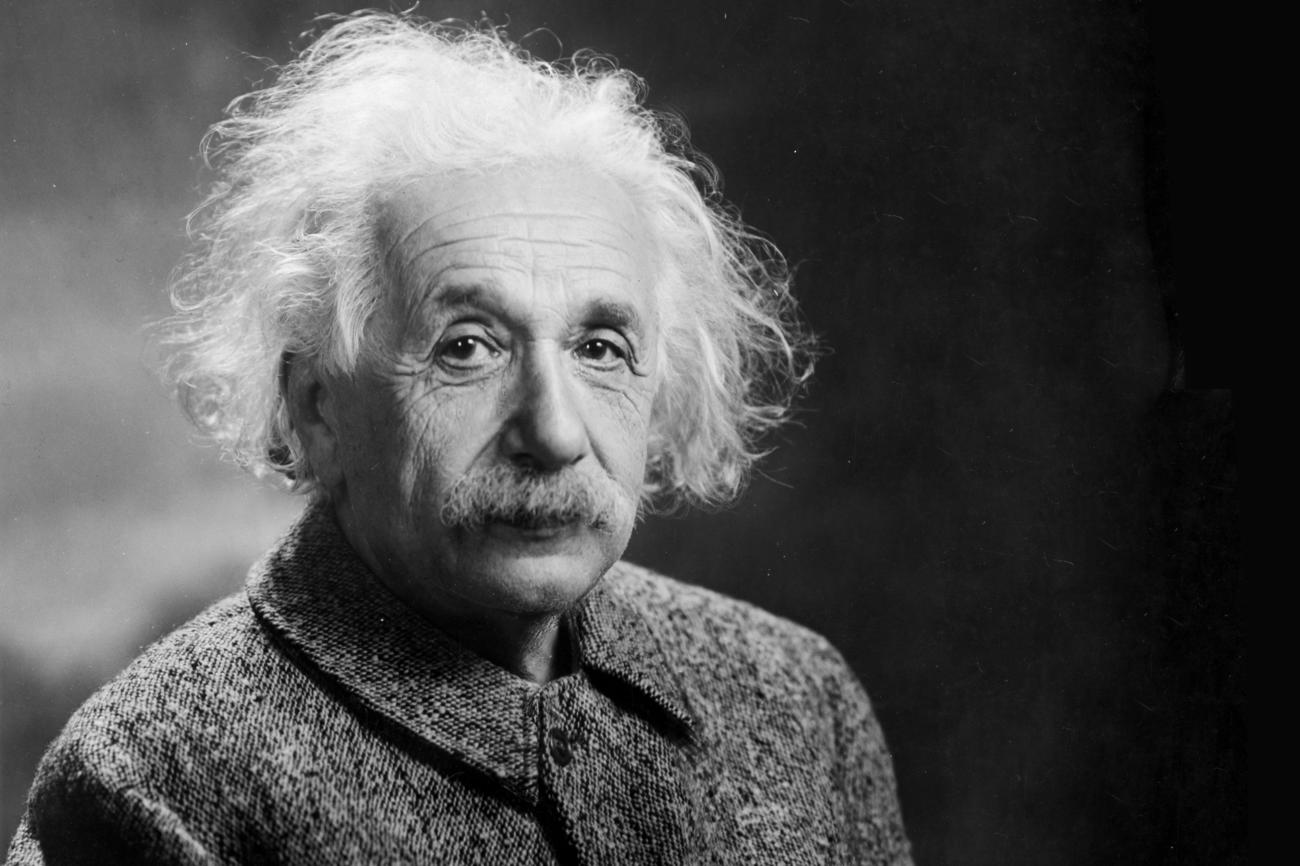24th Einstein Lecture Dahlem: Prof. Dr. Markus Aspelmeyer
Markus Aspelmeyer im voll besetzen Max-Kade-Auditorium der Freien Universität Berlin am 25. November 2025.
Quantum Physics and Gravity: How does Schrödinger`s Cat`s Clock tick?
The 24th Einstein Lecture Dahlem was held by Professor Markus Aspelmeyer on November 25, 2025, at Freie Universität Berlin. You can find further information on the content and the speaker here.
You don't want to miss the next Einstein Lecture Dahlem?
Please register here for our invitation distribution list and don't ever miss another Einstein Lecture Dahlem.
Einstein Lectures Dahlem
The Einstein Lectures Dahlem, hosted by Freie Universität Berlin since 2005 in partnership with several external institutions, are dedicated to the epochal work of Albert Einstein. Einstein was the director of the Kaiser Wilhelm Institute of Physics for almost two decades.
Since 2017, this first-rate-interdisciplinary colloquium is hosted in cooperation with the Max Planck Society, the successor of the Kaiser Wilhelm Society.
The lectures are held in Dahlem, a district in Berlin known for its tradition as a center of scientific research. They address a broad academic audience and cover various scientific disciplines influenced by Einstein’s thinking.
Einstein Lectures Dahlem
- Markus Aspelmeyer (2025)
- Katrin Böhning-Gaese (2024)
- Peter Hegemann (2023)
- Ferenc Krausz (2022)
- Antje Boetius (2021)
- Einstein Lecture Dahlem Special 2020
- Catherine Heymans (2019)
- Emmanuelle Charpentier (2018)
- Hans Joachim Schellnhuber (2017)
- Karsten Danzmann (2016)
- Kip S. Thorne (2015)
- Hermann Nicolai (2015)
- Hanoch Gutfreund (2013)
- David Gross (2012)
- Klaus Töpfer (2011)
- Michel Brunet (2009)
- Johann Deisenhofer (2009)
- Reinhard Genzel (2008)
- Paul J. Crutzen (2008)
- Martin Kemp (2007)
- Giacomo Rizzolatti (2007)
- Günter Dosch & Hans Specht (2006)
- Theodor W. Hänsch (2006)
- Stephen W. Hawking (2005)
- Hans Frauenfelder (2005)


